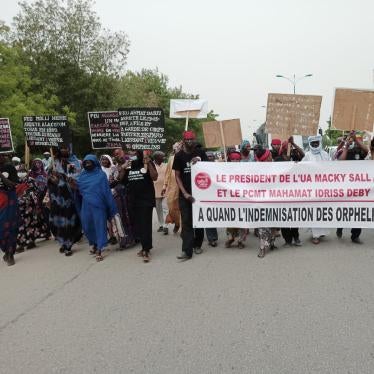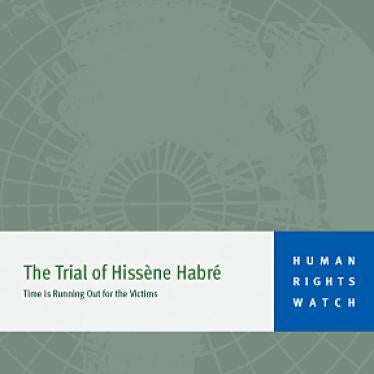(N'Djamena)- Standing on a patch of disused land on the outskirts of Chad's capital N'Djamena, Clement Abaifouta surveys the view around him with tears in his eyes.
"This is where we buried our fellow prisoners every day," he says, gesturing around him at mass graves underfoot, long since covered by weeds and bushes.
"This place has scarred my life. We dug holes just a few centimetres deep and pushed bodies inside with no consideration ... we were not allowed to cry even if it was a relative. The police told us: 'You don't see, you don't talk, you don't tell.'"
Abaifouta spent four years imprisoned under the regime of Hissène Habré, the former dictator of Chad who human rights groups say is responsible for thousands of political killings and the systematic torture of many more.
Habré, whose brutal nine-year rule ended when he was overthrown in 1990, has been formally charged with crimes against humanity, but his trial is yet to begin.
He is accused of ordering some 40,000 killings and 200,000 cases of torture in the central African state between 1982-1990.
"His nickname of 'African Pinochet' is totally justified," said Olivier Bercault of Human Rights Watch.
But his prosecution is fraught with political complexities.
When he fled Chad for Senegal in 1990, Habre took the contents of the country's treasury with him.
Experts say he has used his vast wealth to pressure Senegal - entrusted by the African Union with prosecuting him - into delaying his trial.
Chad's current leader, Idriss Déby, overthrew Habré, but he has always been tight-lipped on the issue - Déby was head of Habré's army before defecting to the rebellion.
French President Nicolas Sarkozy publicly asked for Habré's prosecution to be sped up during a recent trip to Senegal.
"Habré's regime has been like a weight on Chad, and they've never really moved on," said Bercault.
"In 1993 and 1994 most of the henchmen of Hissène Habré, who were working for his political police, were reincorporated into the state security apparatus (by Déby). So those who committed the crimes have been in power ever since."
Abaifouta estimates he buried thousands in the four years he was forced to perform his gruesome work. Conditions in prisons were infamously bad. Many inmates died not simply from torture but from lack of food and water.
"We slept on a concrete floor like sardines in a tin," said Noyoma Kovounsouma Jean, who was accused of being a Libyan agent.
Other victims, like Guilouna Atomgar Thomas, a rebel fighter captured by Habré's forces, spoke of mass killings.
"In the morning they would choose some people from each cell to be executed, he said. "Sometimes they took just two or three, sometimes 80. I remember one day 151 were executed."


